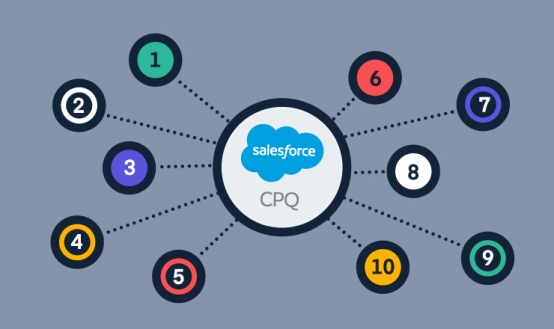The Ultimate Guide to Salesforce CPQ Integrations
Salesforce CPQ (Configure, Price, Quote) is a powerful solution built to integrate seamlessly with other business systems, allowing organizations to accelerate and optimize their sales processes. This guide outlines how Salesforce CPQ integrations function, their primary benefits, and practical applications for different industries.
Salesforce CPQ (Configure, Price, Quote) is a powerful solution built to integrate seamlessly with other business systems, allowing organizations to accelerate and optimize their sales processes. This guide outlines how Salesforce CPQ integrations function, their primary benefits, and practical applications for different industries.

What Salesforce CPQ Integrations Do and How They Operate
Salesforce CPQ integrations connect quoting and pricing functions with other mission-critical platforms, ensuring smooth data sharing and consistent workflows. By linking Salesforce CPQ with ERP, CRM, or e-commerce tools, companies can keep pricing, inventory, and customer records in sync. Automating steps such as quote creation or discount approval reduces manual errors, speeds up turnaround, and provides customers with a frictionless buying experience. For businesses aiming to scale, CPQ integrations create a solid backbone for efficient and sustainable growth.
Key Benefits of Salesforce CPQ Integrations
Improved Efficiency – Automates repetitive quote and pricing tasks, giving sales teams more time to build relationships and close deals.
Enhanced Accuracy – Keeps product catalogs, pricing, and inventory details synchronized across platforms to prevent costly mistakes.
Real-Time Insights – Provides instant access to up-to-date pricing and availability, helping reps respond quickly to customer requests.
Scalable Operations – Adapts easily as sales volume grows, supporting more complex product configurations and pricing structures without major rework.
Common Systems Integrated with Salesforce CPQ
Salesforce CPQ is designed to work with a variety of platforms, creating a connected ecosystem:
ERP Systems (SAP, Oracle ERP Cloud) – Brings visibility into stock levels, purchase orders, and financial data so quotes reflect both availability and budget.
CRM Solutions (Microsoft Dynamics 365) – Enhances customer profiles by connecting sales activity with service history and marketing engagement.
E-commerce Platforms (Shopify, Magento) – Automates online order processing, ensuring customers experience a seamless journey from checkout to fulfillment.
These connections highlight Salesforce CPQ’s flexibility across different industries and operational models.
Step-by-Step Salesforce CPQ Integration Process
Step 1: Identify Pain Points
Evaluate where automation can streamline workflows most effectively, such as pricing approvals or order management.
Step 2: Select Integration Tools
Choose tools or middleware that fit existing systems and allow future scalability.
Step 3: Configure Connections
Set up data mapping, define process flows, and align automation rules for accurate synchronization.
Step 4: Test Thoroughly
Run end-to-end testing to uncover and resolve errors before full rollout.
Step 5: Monitor and Refine
Track performance with analytics, making adjustments to improve accuracy and efficiency over time.
Practical Applications of Salesforce CPQ Integrations
Manufacturing – Linking CPQ with ERP to automate stock checks and pricing rules, reducing delivery times and errors.
Retail – Combining CPQ with CRM and e-commerce systems to create personalized offers, automate confirmations, and raise customer satisfaction.
Technology – Integrating CPQ with CRM and marketing tools to streamline lead nurturing and boost conversion rates.
FAQs About Salesforce CPQ Integrations
Q1: What challenges might arise during implementation?
Complex data mapping and compatibility issues are common. Careful planning and experienced technical support reduce these risks.
Q2: How long does it take to complete an integration project?
Most integrations take anywhere from a few weeks to several months, depending on customization and system complexity.
Q3: Which industries see the most impact from CPQ integrations?
While all industries can benefit, manufacturing, technology, retail, healthcare, and finance often see the greatest improvements in speed, accuracy, and customer experience.
Bottom line: Salesforce CPQ integrations are a catalyst for streamlined sales operations. By automating manual tasks, ensuring data accuracy, and connecting critical systems, businesses can accelerate their growth while delivering more value to their customers.

